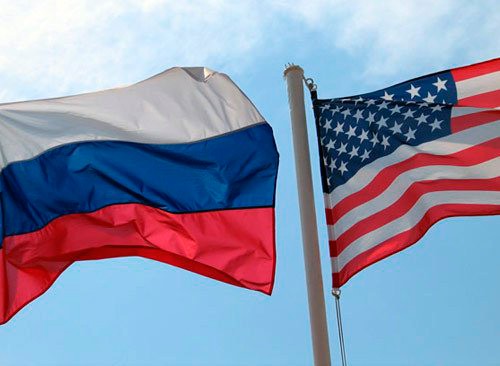
U.S. Strategy Amid the INF Countdown
The U.S. is poised to pull out of the 1987 Intermediate-range Nuclear Forces Treaty (INF) on February 2nd. However, Russia is reasserting that the specifications of its new 9M729 missile are not in violation of the agreement. Russia has insisted on this falsehood since 2013 when the Obama Administration first raised questions about their compliance with the treaty.
The INF Treaty prohibits the development or use of ground-launched cruise missiles (GLCMs) with a range of 500km to 5,500km. The United States finds Russia to be in violation of the treaty, with U.S. Director of National Intelligence Daniel Coats, noting that Russia tested the 9M729 missile from a fixed ground launcher to a distance “well over” 500km. The same report from the Congressional Research Service mentioned that Russia also tested the missile from a mobile launcher to distances under 500km.
Russia continues to deny the claims that they are violating the 1987 Agreement, arguing that the 9M729 (which is an upgraded version of the INF-compliant 9M728 missile) has a shorter range than its predecessor due to added weight from a new guidance system and more powerful warhead. In Geneva earlier this month, Russia offered to allow the U.S. to inspect the missile; the U.S. denied the offer, with Undersecretary of State for Arms Control and International Security Andrea Thompson stating,“To see the missile does not confirm the distance that missile can travel.”
Russia responded to the declination of its invitation with a public exhibition of the 9M729 missile, in which it displayed the closed missile canister for the 9M729 and the upgraded launcher system accompanying it. As the canister was closed, there was no way to view the actual missile itself.
The United States has emphatically expressed that the Russian missile violates the INF treaty and that it seeks to bring Russia back into compliance. Secretary of Defense Mattis bluntly stated in October 2018 that if Russia fails to comply, “the U.S. will need to match its capabilities to protect U.S. and NATO interests.” This statement was coupled with media reports indicating a U.S. effort to begin researching ground-launched INF-range missiles in response.
A U.S. effort to match Russia’s INF-violating capability by researching and preparing these capabilities is ill-founded and ill-advised. With the looming threat of a U.S. exit from the treaty, such actions signal a lack of interest in diplomatic solutions to arms control and thus threaten both the United States and Russia with an arms race.
A previous blog post by William Lucier made clear that “In devising a strategy to counter the Russian missile deployments, it is important to keep in mind that the issue is not a deterrence issue but rather one of arms control.” The United States’ nuclear arsenal, as it stands currently, is enough to deter any Russian nuclear aggression, so there is no reason to incentivize an arms race—the U.S. should seek to solve the issue diplomatically.
Historically, the U.S. has attempted to enforce arms control through joint reduction of nuclear arsenals, through treaties such as New START. However, the current response to Russian non-compliance, which is to simply back out of the treaty, does not signal congruency with this tactic, nor does it demonstrate treaty sanctity to Russia. Failed conversations at Geneva in early January and the U.S. refusal to investigate the 9M729 missile only add to the notion of U.S. disinterest in arms control.
The U.S. has clear evidence that the 9M729 missile violates the INF treaty, despite Russian claims of decreased range capability. Russia has failed to provide sufficient evidence that the missile has been modified to be INF compliant. This does not mean, however, that a “hands-off” plan of action is preferable.
The United States should reassert its strategic interest in arms control diplomacy through active negotiation and discussion with Russia. Russian Foreign Minister Sergei Lavrov has expressed interest in working with the U.S. to salvage the treaty. By declining invitations from the Russians to investigate treaty-violating arms, the U.S. has failed to seize an opportunity to enforce global nuclear arms control. While Russia may not give sufficient access necessary to verify a weapon’s specifications, the U.S. should accept Russian invitations to do so, as these invitations may provide ample opportunity to showcase Russia’s violations or uncooperativeness to the world. The U.S. should act upon Lavrov’s supposed interest in saving the treaty as an opportunity restore the successful tactic of diplomatic arms control, or eventually call Russia out on its insincerity.





